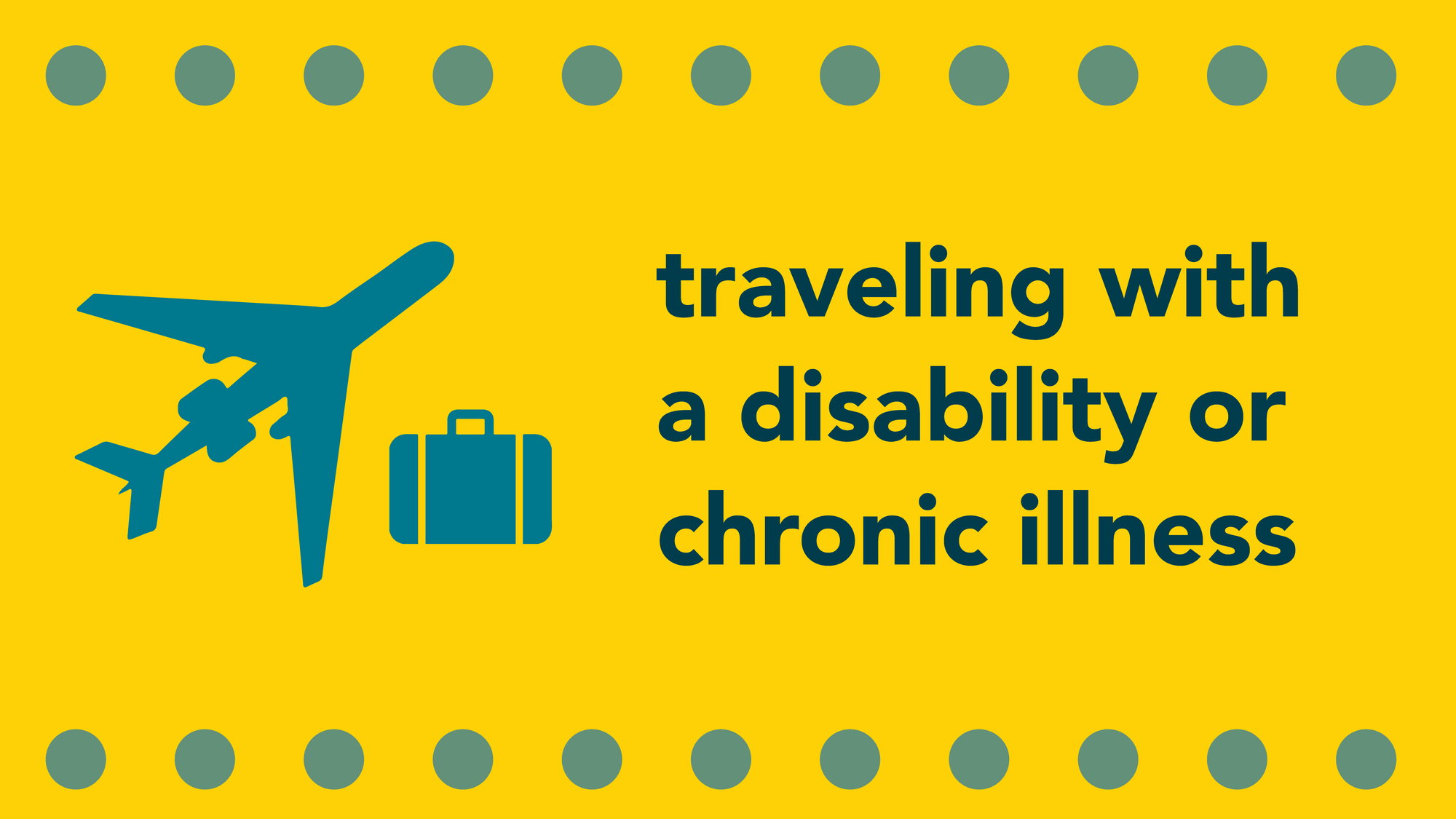Traveling can be an incredible experience, full of new adventures and unforgettable memories. However, for individuals with disabilities or chronic illnesses, it can also be a daunting challenge. The good news is that with proper planning and preparation, accessible travel is possible.
Here are some tips to help make traveling with a disability or chronic illness a little bit easier:
-
Plan Ahead: It's important to research your destination ahead of time to ensure it's accessible and accommodating to your needs. Look up information about accessible transportation, accommodations, and attractions, and make sure to communicate any special needs or requests with your travel provider. Spoonie Threads adaptive hoodies and wrap Recovery Blouses in warm, soft fleece are comfortable for travel and make accessing devices easier.


-
Pack Smart: When packing for your trip, make sure to bring any necessary medication, assistive devices, and other medical supplies. It's also a good idea to bring a doctor's note and a list of emergency contacts in case of any unexpected situations. Spoonie Threads Insulin Pump Belt is great for travel to keep medical devices or medicine close by in a hands-free belt with mutliple pockets so there's room for phone and more.

-
Communicate: Don't be afraid to communicate with your travel provider or any staff members about your needs and concerns. Whether it's requesting a wheelchair, asking for assistance with luggage, or simply explaining your condition, open communication can help ensure a smooth and enjoyable trip. Don't forget to inform the TSA officer that you have medically necessary liquids and/or medications and separate them from other belongings before screening begins. Also declare accessories associated with your liquid medication such as freezer packs, IV bags, pumps and syringes. Labeling these items can help facilitate the screening process. TSA states "Unused syringes are allowed when accompanied by injectable medication. You must declare these items to security officers at the checkpoint for inspection. We recommend, but do not require, that your medications be labeled to facilitate the security process." Read more here. Spoonie Threads Support Sleeve is great to secure medical devices on your arms during travel.

-
Take Breaks: Traveling can be exhausting, especially for individuals with disabilities or chronic illnesses. Make sure to take frequent breaks, rest when needed, and pace yourself to avoid burnout.
-
Be Flexible: Despite careful planning, unexpected challenges may still arise. It's important to stay flexible and adapt to any changes in your itinerary. Remember to focus on the positive aspects of your trip and enjoy the journey.
-
Know Your Rights: Familiarize yourself with the Americans with Disabilities Act (ADA) and other disability rights laws, both at home and abroad. Knowing your rights can help ensure that you receive the accommodations and services you need to enjoy your travels.
In conclusion, traveling with a disability or chronic illness may require extra effort and planning, but it's definitely possible. With the right mindset and preparations, you can enjoy all the wonderful experiences that travel has to offer. Don't let your condition hold you back from exploring the world and creating unforgettable memories.
Want to learn more?
There are a variety of resources available for individuals with disabilities or chronic illnesses who are interested in traveling. Here are some useful links that readers can use to learn more:
-
The Americans with Disabilities Act (ADA) website: https://www.ada.gov/
-
Disabled World Travel: https://www.disabled-world.com/travel/
-
Accessible Journeys: http://www.disabilitytravel.com/
-
Mobility International USA: https://www.miusa.org/
-
Society for Accessible Travel & Hospitality (SATH): http://www.sath.org/
-
The National Center on Accessibility (NCA): https://www.ncaonline.org/
-
Rick Steves' Travel with Disabilities: https://www.ricksteves.com/travel-tips/trip-planning/traveling-with-disabilities
These resources can provide additional information, advice, and support for individuals with disabilities or chronic illnesses who want to travel.



